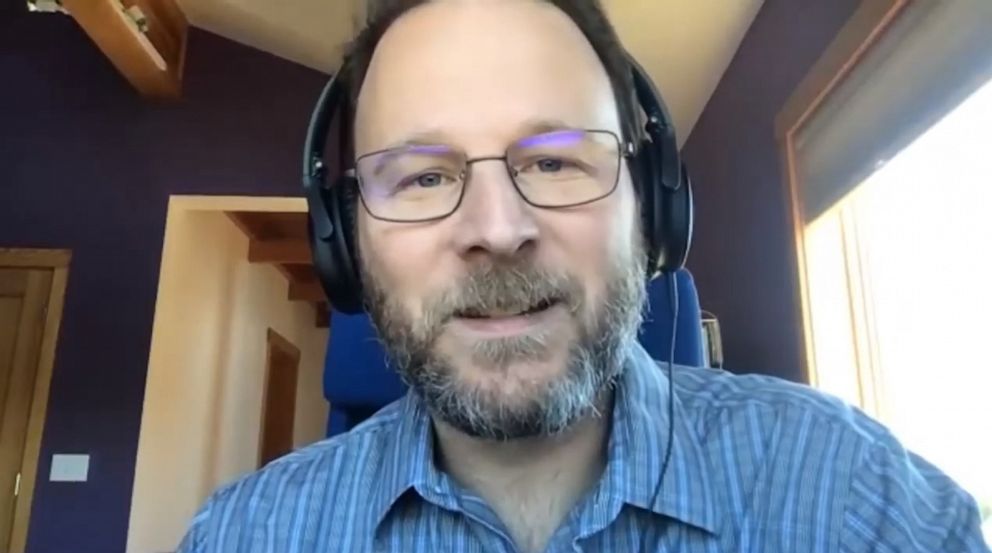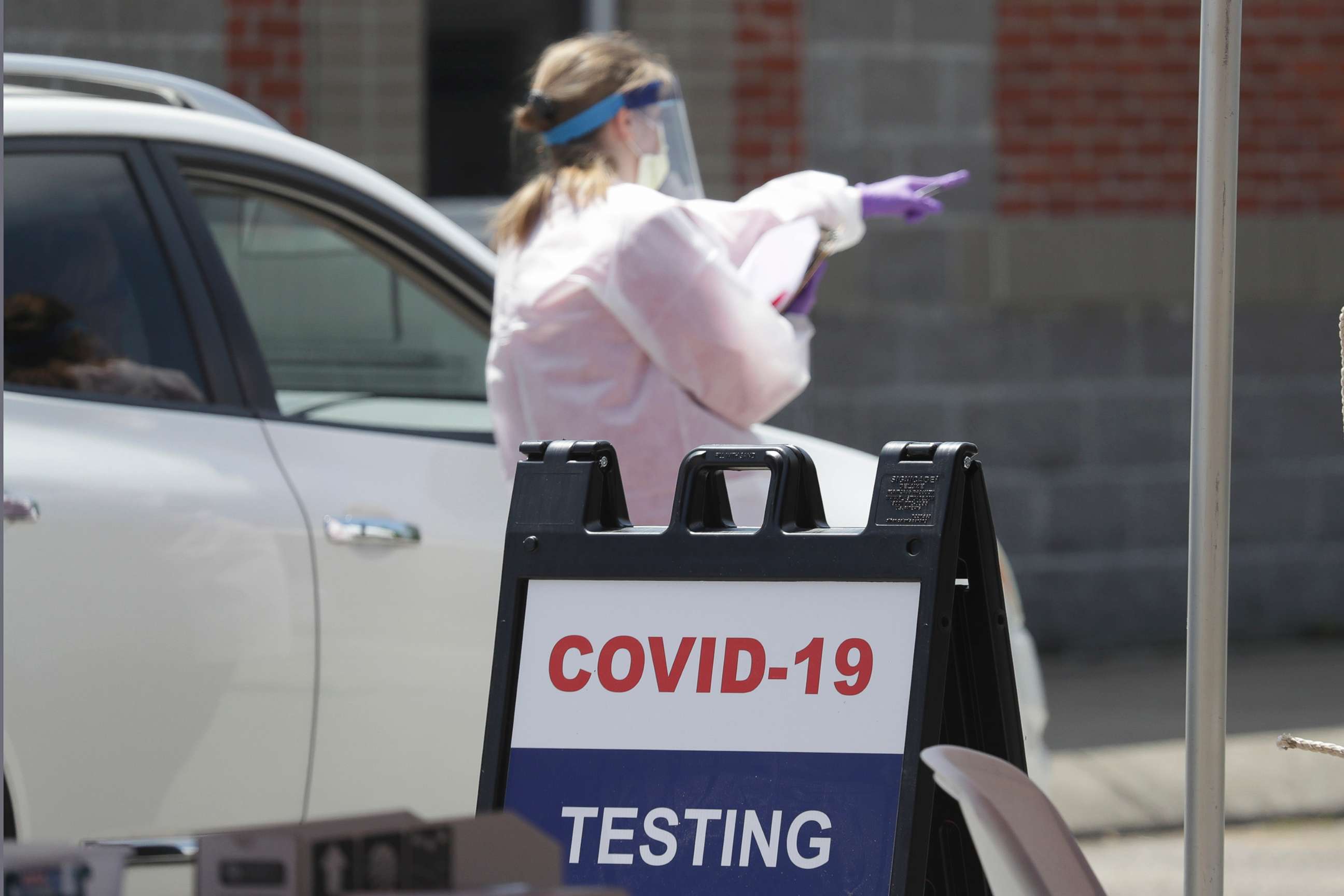Mission impossible: In the scramble for coronavirus test kits, some go to extremes
For much-needed tests, a Washington pathologist looked halfway around the world.
The plot had the hallmarks of an international spy thriller: a desperate pathologist, a contact code-named “Strawberry,” a secret associate in China, tense waiting games, a six-figure payout, an 11th-hour international rescue mission – and then a gut-punch twist ending.
The haul was significant: 100,000 COVID-19 diagnostic tests airlifted from Shanghai to Seattle.
It's the unlikely story of a University of Washington pathologist who was so determined last month to stock up on COVID-19 test kits for his community that he tapped his department’s reserve funds for more than $100,000 and teamed up with a Seattle businesswoman who worked her connections to Chinese manufacturing plants.
The businesswoman, through an overseas associate she knew as “Strawberry,” eventually managed to place an order through an unidentified Chinese doctor for the kits from a Shanghai-based medical products manufacturer -- a colorful tale of pandemic-era intrigue first reported by the Seattle Times.
When Strawberry ran into shipping and customs complications, the pathologist sent a Hail Mary email appeal to an executive at Amazon -- which ultimately agreed to air-lift the supplies to Seattle, both Amazon and the University of Washington Medicine confirmed to ABC News.
“There was no other way to help the community,” said Geoffrey Baird, interim chair of the Laboratory Medicine department the University of Washington, in excerpts from an interview provided by the university’s press office.

But then, a last-minute wrinkle. Last Thursday, what began as a striking example of Seattle ingenuity morphed into a cautionary tale for a nation desperate for a return to a life interrupted by a plague straight out of the Middle Ages.
After the kits had been donated and distributed, Baird learned that some of the specimen collection kits were contaminated with a common bacteria called stenotrophomonas maltophilia that lives in soil and on plastic surfaces.
So, he contacted the state health department and other municipalities where the bulk of the equipment had been donated.
At least 12,000 of the kits were recalled on Sunday, according a state Department of Health news release, though university officials maintain the incident is isolated and they do not believe that any of the test results were affected.
Baird told the Seattle Times over the weekend that further examination of the contaminated specimens indicated that no tests results appeared to be compromised and no one would need to be retested. He said scientists at his lab added a known specimen of the coronavirus to the contaminated specimen-preserving liquid solution and compared them to uncontaminated samples and saw no difference.
"There are very high quality control standards for these kinds of supplies, which is why the [University of Washington] was able to recently detect an issue," a spokesperson for Washington state's Department of Health. "We will continue to work to ensure that the supplies are clean, safe, and reliable."

The spokesperson said the state is "currently experiencing shortages in supplies statewide, and are constantly working to order kit supplies and distribute them quickly," and that "distributing these crucial supplies and increasing our testing capacity remains our focus."
The incident is a dramatic illustration of the lengths people and governments are willing to go to in order to ramp up testing – which experts say is key to returning to normal life in the absence of a cure for coronavirus disease -- and the potential danger in reaching so far afield in desperation.
Tune into ABC at 1 p.m. ET and ABC News Live at 4 p.m. ET every weekday for special coverage of the novel coronavirus with the full ABC News team, including the latest news, context and analysis.
For weeks, governors and city officials have been imploring the federal government to better assist local and state agencies in acquiring adequate supplies to conduct widespread COVID-19 diagnostic tests. With warmer weather approaching and pressure growing to reopen local economies, officials are racing against a ticking clock.
While roughly 150,000 Americans a day are being tested for COVID-19, that figure has remained roughly static for two weeks, according to the COVID Tracking Project, and health officials have concluded that exponentially more Americans need to be tested daily before areas of the country can begin safely re-opening.
New restrictions on Chinese exports
Baird, the pathologist, declined an ABC News interview request, but the international intrigue he set in motion was confirmed by Susan Gregg, a University of Washington Medicine spokesperson, and the Seattle businesswoman, Anita Nadelson.
"He’s been working on that tirelessly because our lab can process more samples than it was receiving,” Gregg said. "So he decided, ‘I’ve got to solve this problem.’ He got this money out of this fund and said, ‘I’m going to try and go find someone.’"
Once the tests arrived, Gregg said that the vast majority of them performed as expected and that the manufacturer offered to refund money to the university, though further analysis showed the contamination was ultimately not a significant problem.
“They’re not seeing that it impacted any of the test results either positive or negative,” she said.
Officials at Lingen Precision Medical Products in Shanghai, China -- which supplied the tests, according to the Washington State Dept. of Health -- did not immediately respond an emailed list of questions about the shipment to Washington state.
When ABC News contacted the firm’s export department in China on Wednesday, an employee said the factory does not manufacture any testing kits and then hung up the phone.
Several weeks ago, Chinese authorities ramped up oversight of COVID-19 test kit exports after several European nations complained about faulty Chinese test kits, Reuters reported.
The new regulations require Chinese labs manufacturing COVID-19 tests to obtain a registration certificate to export the kits. Lingen Precision Medical Products does not appear to be listed on an English-language version of Chinese government website page that specifies labs authorized to export the tests.
Nadelson told ABC News that she participated in a 90 minute video call with Dr. Baird, Lingen officials and several others involved on Monday evening, and remains confident in the tests.
"They've taken every measure that they should take," Nadelson said. "From what I understand contamination sometimes happens, and there are ways that you go about figuring out what [happened], And they've done that. They think that they did actually find the source of it. And they'll fix it, and they've remediated all of it."
Nadelson said Lingen officials offered to replace all 100,000 kits.
"Actually, we're just waiting on that," she said.
Experts believe the Washington shipment may be the first reported incident of tainted COVID-19 testing equipment shipped to the U.S. from overseas.
"That's why quality checks are so important," said Scott Becker, chief executive of the Association of Public Health Labs, an organization whose 125 members include health labs at the state, county and local level. "That's why the FDA's role is so important."
A Food and Drug Administration spokesperson did not respond to a request for comment Wednesday about other instances of contaminated or tainted shipments of diagnostic testing kits shipped to the U.S.
With domestic testing shortages, some officials look abroad
While diagnostic testing nationally has remained relatively steady in the U.S. in recent weeks, there are indications that could change.
Earlier this week, a blue-ribbon panel of experts gauged that domestic test producers would have to deliver 5 million tests a day by early June in order to safe re-open parts of the country by July. Currently, a total of more than 25 million tests are expected to have been produced by the end of April.
On Tuesday, the FDA announced the approval of the first at-home COVID-19 diagnostic test, though it will initially only be available to health care workers and other front line medical staffers.
President Donald Trump pledged additional federal support Tuesday, following an Oval Office meeting with New York Governor Andrew Cuomo.
“The federal government will work with the state on the national manufacturers and distributors to help secure additional tests,” Trump said.
Last month in Albany, New York opened the first state lab in the country to begin testing for coronavirus based on its own test, developed on-site. This week, Kentucky began a public-private partnership with the grocer chain Kroger to conduct 20,000 tests in five weeks, among other initiatives.
But diagnostic tests remain in short supply domestically because most national manufacturers are unable to produce the quantity and variety of testing kit materials needed to fuel widespread U.S. testing.
In response, city and state health officials are growing increasingly creative in seeking out their own supplies wherever they can be found.
On Monday, Maryland governor Larry Hogan announced that he’d secured a half-million COVID-19 test kits from South Korea’s government after a direct appeal to the South Korean ambassador to the U.S., Lee Soo-Hyuk.
“That call set in motion 22 straight days of vetting, testing, negotiations and protocols between our scientists and doctors,” Hogan said at a press conference. Eight Maryland state government agencies, and our counterparts in Korea.”
Earlier this week, Trump chided Hogan for going overseas for testing materials.
"Could've saved a lot of money, but that's okay,” the president said. "I don't think he needed to go to South Korea. I think he needed to get a little knowledge. That would've been helpful."
Cuomo applauded the move.
"Why didn't I think of buying them from South Korea?” the New York governor said Tuesday morning.
Health experts continue to maintain that the only safe way to re-open is through more widespread testing than is currently available due to the shortage of diagnostic testing kits among most U.S. municipalities.
Critics say the haphazard, often desperate manner in which states and municipalities are being forced to forage for testing supplies and the seemingly bottomless appetite worldwide for testing kits could prove perilous.
“The lack of a comprehensive national plan to supply states and localities the chemicals and equipment needed to conduct widespread testing has forced many communities to seek those supplies elsewhere — including from foreign suppliers,” said John Cohen, a former senior Department of Homeland Security official and ABC News contributor.
“This approach could be dangerous … and result in ineffective equipment or contaminated chemicals.”
Peter Pitts, a former associate commissioner at the Food and Drug Administration (FDA) and president of the New York-based Center for Medicine in the Public Interest, said that despite the domestic shortages, buying kits overseas can be risky.
He said the Washington shipment is the first report he's heard of corrupted testing materials shipped from overseas.
“It’s just like buying prescription drugs on the Internet,” he told ABC News. “When you buy these things online, it’s really playing Russian roulette with your health.”
ABC News’ Josh Margolin, Jun Cao, Karson Yiu, Olivia Rubin, Alex Hosenball and Libby Cathey contributed to this story.
What to know about Coronavirus:
- How it started and how to protect yourself: Coronavirus explained
- What to do if you have symptoms: Coronavirus symptoms
- Tracking the spread in the US and Worldwide: Coronavirus map



